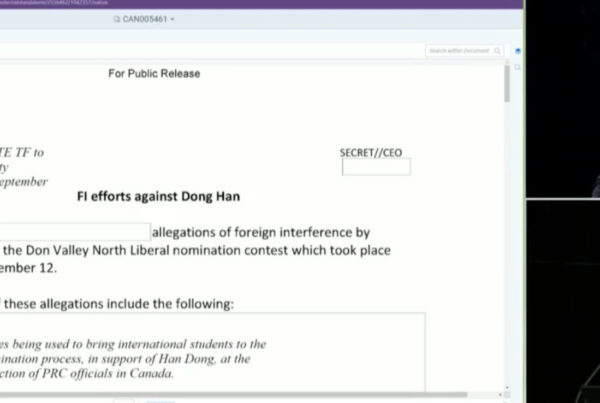By way of a personal introduction, the author was a child in a Canadian Air Force family and spent much of his childhood as the perpetual newcomer (the family moved five times in seven years). His parents normally chose to live off-base which inevitably meant – for their sons – having to negotiate with a whole new school almost every year. This also inevitably meant having to confront a new suite of bullies and finding one’s place in a new pecking order every time. Life lessons were learned.
There are two constants in society; there are always people intent on reforming others (they are usually but not invariably ‘liberal’). Then there are those intent on not being reformed by others who are most often comfortable in the ‘conservative’ camp. Both labels are not entirely accurate.
There are three ways of looking at this perpetual struggle. Sometimes, change is vital, good and necessary and it is quite possible to find both camps engaged in creative tension over ways and means. Liberals like William Wilberforce may have led the charge against the institution of slavery but in the end it was ,conservatives like the Duke of Wellington, who drove that charge home.
Sometimes, there are people who drive change as a reaction to personal tragedy. In these encounters, the usual labels do not apply and might be reversed in some situations. Victims of violent crime, who often push to tighten up the justice system, find themselves opposed at every turn. On the other hand, in the early 1980s, Mothers Against Drunk Driving (MADD) achieved very rapid success in eliminating society’s then widespread tolerance of drinking and driving.
The third aspect is less welcome. There are people who, by their very nature and upbringing, feel compelled to change others and they lock in conflict with people who do not want to be changed. Let’s call the first camp activists and resist the temptation to call the second camp ‘targets’.
Sometimes, the activist’s goals are praiseworthy, but their ultimate motives are questionable.
In terrorism, the ultimate “root cause” is the terrorist’s own interior psychological make-up which generates a desire to appear heroic, to refine one’s self image or to cause harm. He or she then shops around for an ideology that permits and shapes their violence. It would seem some activists share a similar predilection.
There are many activists for particular causes whose main impetus appears to be ideological. Members of Communist Parties, for example, have a long history of creating activist campaigns or infiltrating existing groups and turning them to the advantage of their party. “Entryism” was the Trotskyite name for this tactic and one example is the use Socialist Action made of their memberships in Canada’s New Democratic Party over the years. Many Canadian Communists and Trotskyites had no clear personal interest in such diverse issues as day care or prison reform but they saw an opportunity to advance a wider agenda.
Ideologues can be bullies – particularly when they sense things are going their way – but this is not inevitable or universal. It is, however, usually a prudent practice to keep them from attaining political power. Some people can be trusted with the keys to the liquor cabinet and others cannot.
However, there is a very close connection between the psychology of bullying and one particularly common form of activism. One of the most common forms of schoolyard or societal bullying is the enforcement of conformity or at least those notions of conformity as understood by the bully/activist.
As first personally observed in the many schoolyards of the 1960s, bullies often defend what they think is the social order. One particular nemesis believed it was his duty to keep those he regarded as strange or weird away from the ‘cool’ kids whose ranks the bully desperately believed would open to him for his exertions in their defence. If he did not undertake this duty, he himself might descend in status to be among what he thought were lesser beings.
The same sort of drive would explain the Klu Klux Klan in Mississippi and Alabama some 50 years ago. In a small rural Southern town, there were three general layers of status: the wealthy educated whites, the not so educated or well-off whites and the blacks. The KKK largely came from the middle band and consisted mainly of men who felt, at that often unconscious level where our ‘political’ thinking really begins, that their status would be endangered if the Blacks squirmed out from underfoot. They also hoped that their efforts on behalf of the status quo would be rewarded.
A lot of bigotry can be explained thusly. The same model would not seem unfamiliar to Eastern European Jews under Czarist rule. This may partly explain the bewilderment the Holocaust caused, being racism from a largely unexpected source. Polish and Ukrainian Jews knew what Cossacks and some of their neighbours could be like but the Germans were supposed to be cultured. Catholics in Ulster faced the same from working class Protestants, and so on.
The bully is often an instrument of conformity- an enforcer who feels that his (or her) efforts will improve their own lot provided that they are merciless to the non-conformists. There is nothing new here. In some ways, the above has been the plot device for dozens of bad movies about youthful rebellion by misfits ever since ‘Animal House’ (in which, it should be pointed out, the bullies had their victory in the end).
Many dictatorial regimes have also learned one tool of governance is to give petty authority to those eager to exercise it. It turns them into supporters of the regime and its most zealous defenders. It is an old phenomenon but perhaps the best contemporary example can be seen in Venezuela where Hugo Chavez has created a large political militia of his lower class supporters. It is a safe prediction that these supporters will poison Venezuelan politics for decades after Chavez is gone. This is an old phenomenon.
For that matter, dictatorial regimes that become police states rely on bullying conformists to inform on their neighbours. The German Gestapo actually had very few officers engaged in domestic security but they relied on streams of denunciations and reports filed by hundreds of thousands of ordinary Germans determined to prove their worth and orthodoxy. Soviet authorities relied on the same system.
For that matter, cast an observing eye on a collection of police officers. Some are outstanding human beings, strong and compassionate, motivated by an impulse of service to the community. Some are professional; policing is a job and they will perform it as best as they can. There are a few, however, who are attracted to police service by the prospect of the authority they will gain, and who will abuse it when they think they can get away with it.
This simple observation should really be no surprise. Hegel pointed out in his “Philosophy of History” that the real driving force in history is the individual’s constant striving for status and influence. Those with less are often eager for more; those with more are eager to defend it. Give people who have had no authority some of their own to exercise and the results should be entirely predictable.
Modern Western urban society is far more complex than that of – oh, 1950s rural Mississippi – or the average suburban schoolyard.
Some of the more pernicious developments in our society involve the development of what could be called post-modernist liberalism or the appearance of an ideological elite in what had been, some 50 years, ago an increasingly egalitarian society. Those who hold to the credo of classic Western Liberalism are now hopelessly out-of date ‘Neo-Cons’ while the former partisans of that belief have been supplanted by a managerial elite that believes in the benevolence of the state (when in the proper hands of course) and support the states ability to intrude into every facet of our lives for our own good.
The late Christopher Lasch was a prescient observer of major trends in the Western World and his last book (published posthumously in 1995 – The Revolt of the Elites and the Betrayal of Democracy) warned of the directions this trend would lead to and the following 15 years certainly give abundant reason to trust his warning. A governing/managerial culture has emerged based on contemporary liberal elites who view the public as being too ignorant to be consulted about the business of governance. Lasch did point out that the depreciation of the rigors of the education system over the last few decades was no accident and supports the assumption of this culture.
The hatchet-toting Carrie Nation of the 19th Century Temperance movement would have approved: the ability of the state to do good to society seems limitless. Those of us who wish to be left alone are on the ropes and being slugged silly.
What might be helpful for the punch-drunk citizen who is being knocked endlessly about is to remember some things about bullying and how to resist it successfully.
The modern activist bully has a whole range of issues to work on and numerous targets to engage.
Gun control is one classic situation. People who own guns and enjoy using them are obviously not in tune with the modern state and therefore can be safely harassed by any mechanism the activist bully can enable. Even if every new proposal in the US and Canada by every level of government to restrict the right of firearms ownership is defeated, the activists keep trying. Gun-owners haven’t learned their lesson yet.
The Christian Churches are out of lockstep with the temper of the times and must also be punished accordingly. In the new spirit of Multiculturalism, of course, not all religions are safe to persecute but every attempt to demean those whacky Baptists and evangelicals must be good, and every misdeed by Catholic Clergy over the past 50 years must be exploited as fully as possible. In the meantime, in the name of “Separation of Church and State” (whatever that means), every public expression of Christianity must be curtailed. No more crèches at Christmas… oops, during the Holiday season… no more crosses on hilltops, and so on.
The sheep-like way in which smokers caved in to the new Zeitgeist is especially disheartening. Admittedly, most of us don’t miss the blue haze that used to fill our restaurants and bars and smoking is an unhealthy habit. But the attempts to regulate smokers in their homes, their cars and in every aspect of their lives need to be opposed. Where are the ‘Smoke-ins’ and the signs of opposition? It has also been interesting to watch the boundless zealousness of those opposed to smoking, who now seek laws that intrude into the homes and automobiles of smokers.
There are things that truly irritate a bully. When a target refuses to be timorous or remains dignified in the face of indignity, it can be infuriating. One can almost imagine the though process: “How dare he ignore me, doesn’t he know his place?” This then leads to the almost entirely unconscious though that attends it: “If he doesn’t know his place, who will know mine?” Admittedly, this might not be the best defence with physical bullying unless one is prepared to endure the consequences or at least fight a losing battle like a cornered wolverine.
When Christ preached that the best response to an insult was to turn the other cheek, one might well wonder if this was the intended result. If it was, then perhaps it was best that Christ didn’t specify exactly what cheek one should turn… What might be called the “St. Bernard” tactic is often a good response to bullying by snobbery and insult; if one is being snubbed, act like a big gentle St. Bernard dog and give them more of you to love and be sure to – metaphorically — shed hair and drool on the furniture while at it.
Bullies really don’t like being mocked and one should remember that some inner sense of insecurity constitutes a significant part of their motivation. Never pass up a chance to deride an activist and take advantage of the fact that few have a sense of humour. It is, however, important to remember that some do… particularly some of the ideologues of the Radical Left. As Sun Tzu cautioned 2,500 years ago, know your enemy and yourself before launching an attack.
When separating the activist bully who seeks authority and status, from the genuine activist with a cause, consider the following:
The person with a real cause is not seeking status or financial reward; this is not true of the activist who turns their issue into a profession.
The person with a real cause is prepared to discuss matters, and may sometimes change their message. The activist bully will use the opportunity to hector opponents and will not budge.
When meeting policy makers and senior officials, the person with a real cause is often unsure of how to act and may not be comfortable. The activist bully is delighted to be in the room and pleased when in the proximity of power.
For the modern citizen, particularly those who are normally inclined not be pushed around, there can only be one rational result: Become as contrary as possible. The more your religion is snubbed, the more you should openly practice it. If owning firearms or eating red meat is frowned upon, then your path is clear. If some books are deemed too difficult or old fashioned to be safe for children, buy them for as many children as you can.
Encourage critical thinking… and embrace rational rebellion. It drives the bullies nuts and if one is properly prepared for it, driving bullies nuts is enormous fun and should be engaged in whenever possible. It is the best way to drive them into permanent retreat. So whenever one encounters bullying, it should be automatic to turn the other cheek… the one that requires you to loosen your belt before presenting it.








